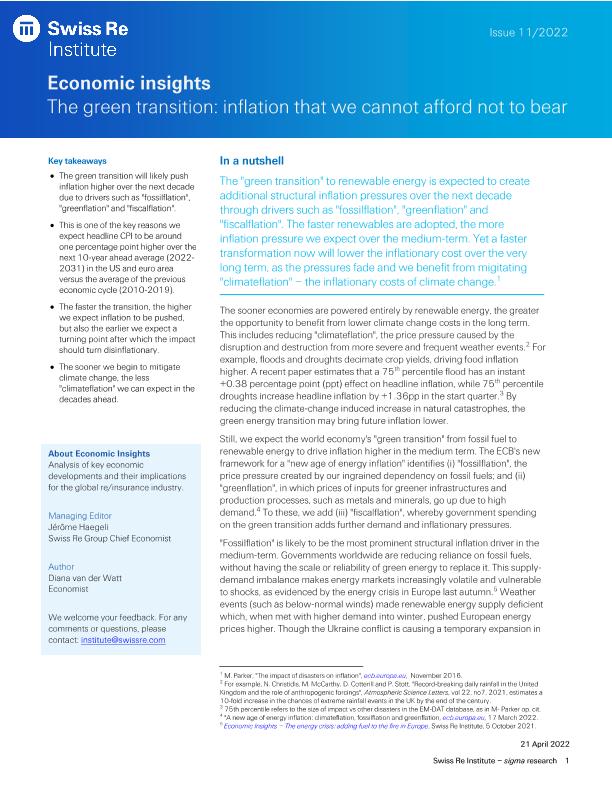The Green transition : inflation that we cannot afford not to bear

Contenido multimedia no disponible por derechos de autor o por acceso restringido. Contacte con la institución para más información.
| Tag | 1 | 2 | Valor |
|---|---|---|---|
| LDR | 00000cam a22000004b 4500 | ||
| 001 | MAP20220012096 | ||
| 003 | MAP | ||
| 005 | 20220426151303.0 | ||
| 008 | 220425s2022 che|||| ||| ||eng d | ||
| 040 | $aMAP$bspa$dMAP | ||
| 084 | $a83 | ||
| 100 | 1 | $0MAPA20220002349$aVan Der Watt, Diana | |
| 245 | 1 | 4 | $aThe Green transition$b: inflation that we cannot afford not to bear$cDiana van der Watt |
| 260 | $aZurich$bSwiss Re Institute$c2022 | ||
| 300 | $a2 p | ||
| 490 | 0 | $aIssue 11/2022 | |
| 520 | $aThe "green transition" to renewable energy is expected to create additional structural inflation pressures over the next decade through drivers such as "fossilflation", "greenflation" and "fiscalflation". The faster renewables are adopted, the more inflation pressure we expect over the medium-term. Yet a faster transformation now will lower the inflationary cost over the very long term, as the pressures fade and we benefit from migitating "climateflation" the inflationary costs of climate change | ||
| 650 | 4 | $0MAPA20080569556$aMedio ambiente | |
| 650 | 4 | $0MAPA20080590604$aEnergías renovables | |
| 650 | 4 | $0MAPA20080600877$aDesarrollo sostenible | |
| 650 | 4 | $0MAPA20080574932$aCambio climático | |
| 710 | 2 | $0MAPA20170013402$aSwiss Re Institute |

